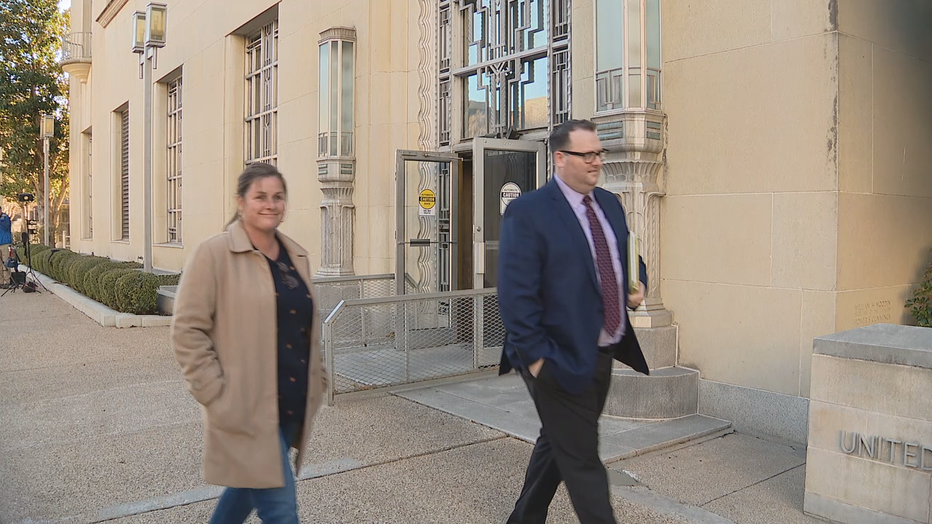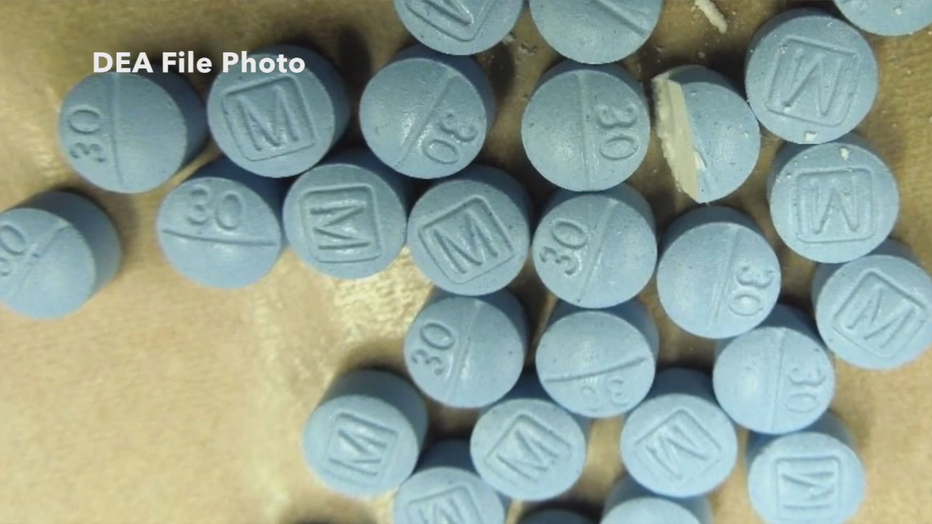Eric Kay's trial underway after overdose death of Angels pitcher Tyler Skaggs
Eric Kay's trial underway after overdose death of Angels pitcher Tyler Skaggs
Opening statements for Eric Kay's long-delayed trial began Tuesday. Prosecutors said he'd be the only one to give Tyler Skaggs oxycodone pills laced with fentanyl and said he was one of the last people to see Skaggs alive.
FORT WORTH, Texas - Federal prosecutors say the Los Angeles Angels' former communications director searched for narcotic pills on apps like ‘Offer Up’ to give to players, including pitcher Tyler Skaggs.
Skaggs died of an overdose on an Angels Road trip to Texas in 2019. His body was found in his Southlake hotel room.
RELATED: Eric Kay indicted on two federal counts in overdose death of Tyler Skaggs
Opening statements for Eric Kay's long-delayed trial began Tuesday. Prosecutors said he'd be the only one to give Skaggs oxycodone pills laced with fentanyl and said he was one of the last people to see Skaggs alive.
Kay's lawyers didn't deny he gave Skaggs drugs but opened the door to the possibility that someone else may have as well.
The federal criminal trial for Eric Kay began Tuesday afternoon in Fort Worth.
Prosecutors are arguing it was Kay that gave Skaggs the fentanyl that killed him the night before he was found dead in a Southlake hotel room.
FOX4 captured Kay as he left the federal courthouse Tuesday afternoon in day one of his criminal trial.
"You guys know I can’t talk," he said.

Kay faces two federal drug charges including distribution of a controlled substance ending with the July 1, 2019, death of Los Angeles Angels pitcher Tyler Skaggs.
Trial set for ex-Angels employee over role in Tyler Skaggs' overdose death
Skaggs was found dead in his Southlake hotel room the day after the team had traveled from California to North Texas to play the Texas Rangers.
Kay, 47, is a long-term member of the Angels who in 2019 had recently been promoted as the team’s communications manager.
The prosecution claims that Kay had been Skaggs’ drug dealer for two years and was the only person who could have given the drugs that killed him
In their opening statements, the prosecution focused on two points: that Skaggs died from a fentanyl overdose and that Kay provided Skaggs with fentanyl-laced oxycodone that killed him.
The defense declined to comment further Tuesday afternoon. But in the courtroom, they argued that Skaggs and Kay were both drug addicts and close friends trying to keep their drug use a secret.
The defense claimed Kay never gave Skaggs any pills in while they were in Texas and there is no way of proving that Kay was Skaggs’ sole drug dealer.

"These cases are always challenging because it is true that oftentimes a drug user will have multiple sources of their supply," said former Dallas County prosecutor Russell Wilson.
The prosecution presented a text message from Skaggs asking Kay to come to his hotel room with pills on the night of June 30.
Kay said, "okay."
The defense admits Kay went to Skaggs’ room and saw him snorting drugs but didn’t provide any drugs that night, didn’t participate and quickly left the room to go to bed.
"It’s rare that individuals are prosecuted in drug deaths because it’s difficult to establish exactly who provided the lethal drugs," Wilson said.
Kay’s lawyers also admit that Kay did in fact give Skaggs two blue oxycodone pills right before they traveled to Texas, but they said Kay took two of the same pills after Skaggs died and "didn’t feel anything."

A single blue oxycodone pill was found in Skaggs’ hotel room. Lab results showed it was laced with Fentanyl.
"Fentanyl is treated very seriously under federal sentencing guidelines," Wilson said. "So he’s still looking at a very stiff and serious prison sentence if he’s convicted of any of these offenses.
The prosecution called its first witness Tuesday. It was Dodgers pitcher and former Angels player Andrew Heaney. He recounted the entire timeline of the trip to Texas, the bus ride, the flight and then the failed attempts to contact Skaggs leading up to his body being discovered.
The defense will have its chance to question Heaney Wednesday morning.

